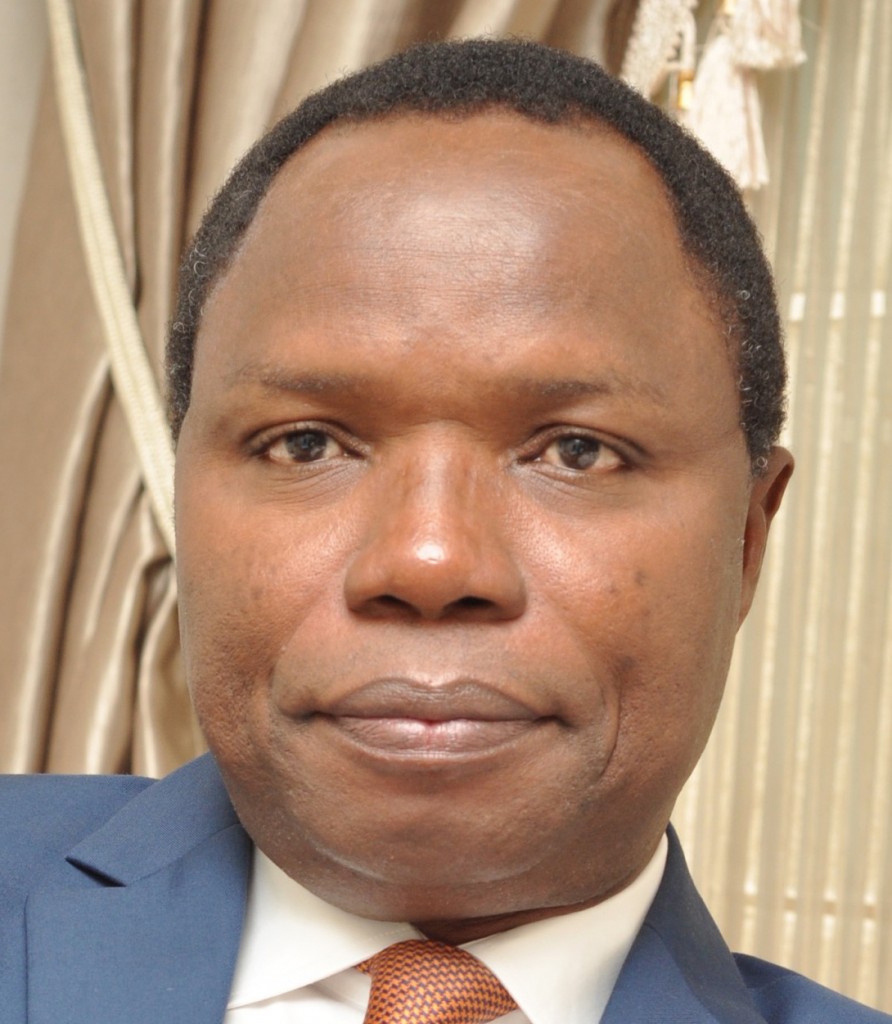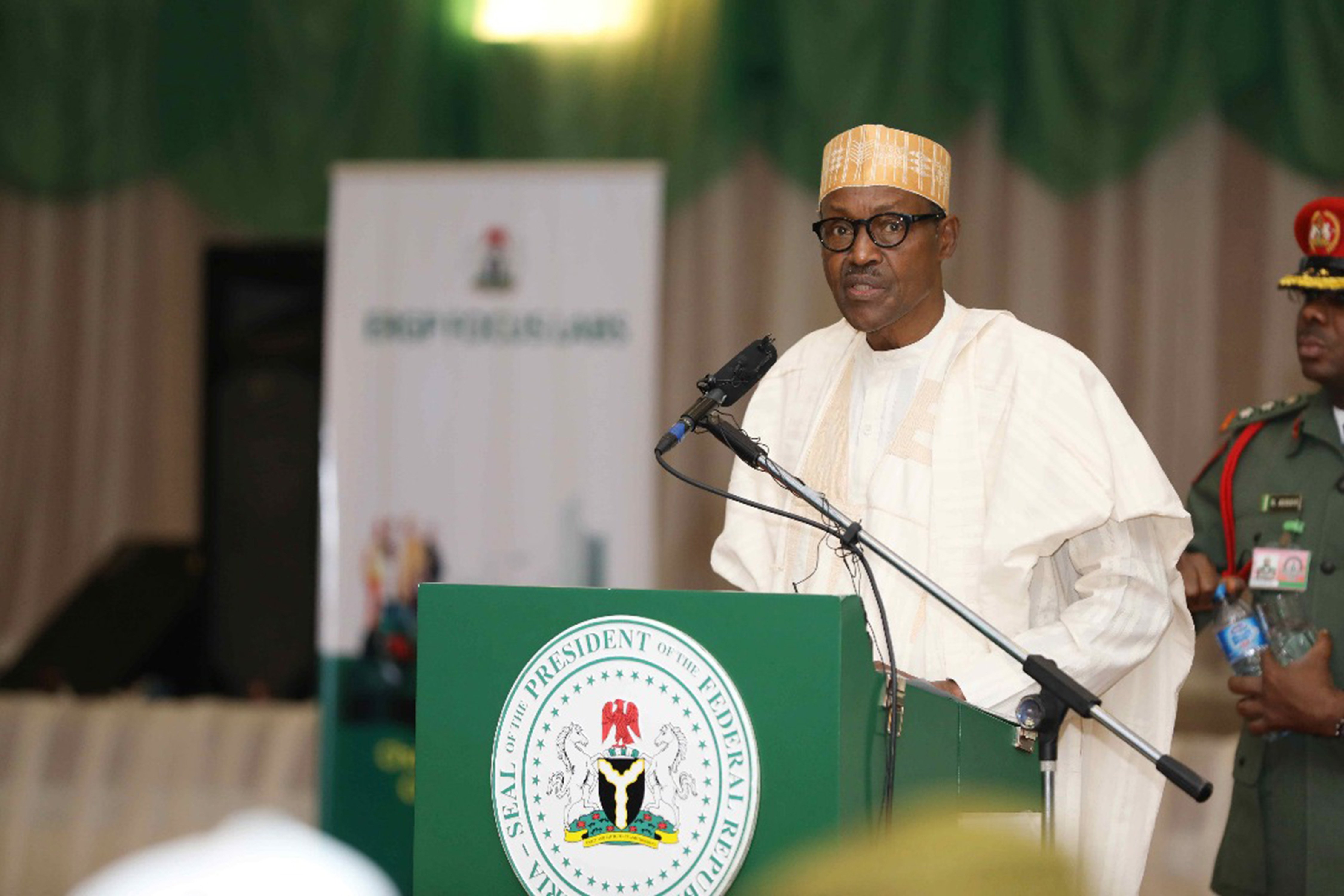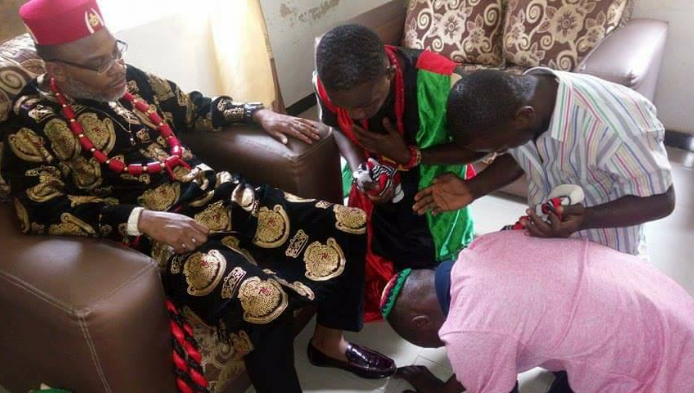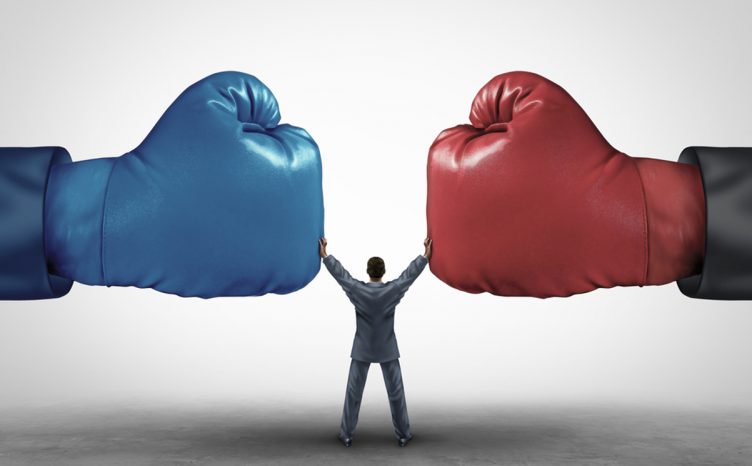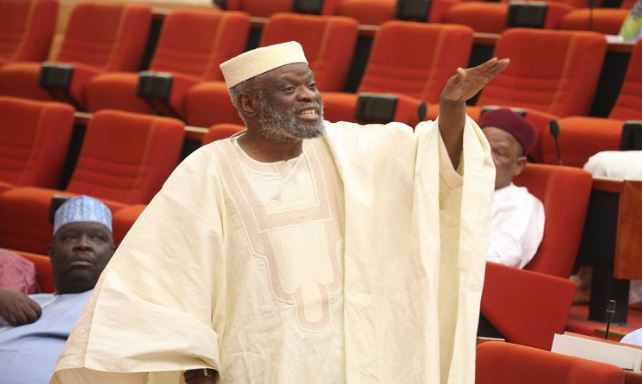PRESIDENT BUHARI LAUNCH ERGP. 3. President Muhammadu Buhari addressing the participant during the Formal Launch of the Economic Recovery & Growth Plan 2017-2020 (ERGP) LABS held Banquet Hall State House, Abuja. PHOTO; SUNDAY AGHAEZE. MAR 13 2018
Can we still save this democracy? Saving Nigeria’s democracy is as important as saving the unity of this country. It is the only way we can protect the future of our children. No one can convince me to believe that the way we are going will lead us to a great democracy and prosperity.
No one can tell me that if other countries can get it right we too cannot. No one can tell me that we can develop through the way we are pursuing development. No one can tell me that if others can be pragmatic in their approach to development we cannot use a pragmatic approach to our development too.
Time without number I have shown these concerns. I can’t stop demanding from our leaders why they can’t be serious with their jobs. Where are their selfless sacrifices and statesmanlike responsibilities toward our country? If it is true that economic development — which is not rocket science — is the simplest thing any nation with serious leaders can easily offer to their nation, why then are our so-called leaders and economists pretending that it is difficult to do?
The first U.S. treasury secretary, Alexander Hamilton, without having even an elementary knowledge of economics, in 1791, championed the industrialization of the U.S. using infant industry policy to achieve industrial catch-up with Britain, its former coloniser. Simply blocking the import of British-manufactured goods and going ahead to substitute them with locally made ones soon triggered the unprecedented American industrialization and competition with Britain. Following America’s import substitution industrialization in 1841, today’s Germany in joining the club of industrial economies became Europe’s largest industrial economy.
Japan in 1868 took the same steps. Copying from the industrial west, Emperor Meiji insisted on poor Japan’s industrialization and economic prosperity. And within three decades it became the first and largest industrial economy in Asia. South Korea’s General Park, seeing how prosperous and militarily powerful Japan became, decided that his country too should become an industrial economy, and within three decades it was industrially competing with Japan and the west. Once he became Chinese leader, Deng Xiaoping wasted no time in championing China’s industrialization. And in less than four decades from a provincial economy, China became not an industrial economy giant but surprised the whole world when it also became the world’s second largest industrial economy. Even India too could industrially find its own way — it is today the world’s fastest-growing high-tech and service economy.
Advertisement
Nigeria, my Nigeria, is stuck. The giant of Africa cannot move beyond an oil economy. We cannot, because our leaders are not mentally and emotionally thinking to industrially develop Nigeria into a prosperous black nation. They cannot, because rather than being about the people, it is all about their political self-centeredness; it is their ability to exploit our ethnic and religious differences which they have to constantly magnify to their selfish interests. But, above all, it is their unending holding the country to ransom by refusing to free the country from itself. They know that no nation in the world has developed with government leading development. They also know that without allowing the states and regions to mind their businesses, Nigeria will never ever move beyond its present shadow.
Nigeria’s story can’t be more tragic than it is today. This is the tragedy of the Buhari presidency since 2015. His promised new economic thinking, popularised as buharinomics, has further set us backwards. Lacking in direction and substance, his economic socialism where government does everything while forcing private-sector operators to be spectators has turned out to be an economic feudalist phenomenon. No wonder rather than heading in the direction of industrialization we are being led back to a provincial agrarian economy, with world’s poverty capital as a new trademark. And just on April 3, 2019, the report on Global Food Crisis 2019 by the UN Food and Agriculture Organisation has placed Nigeria as one of the 8 nations of the world today facing “acute hunger.” But among these countries namely — Syria, Yemen, DRC, Sudan, South Sudan, Ethiopia, and Afghanistan — only Nigeria is the country that is neither fighting/fought a civil war nor suffering from a drought.
Notwithstanding that the country is debt ridden, the feudalist socialism called buharinomics still insists that strategic industrial infrastructure should remain in the hands of government even when it is obvious that the government in question can hardly pay salaries let alone run its day-to-day affairs. With this promotion of public sector-led infrastructure development, billions of dollars and trillions of naira in debt have continued to be dangerously accumulated. Done without conducting debt sustainability analysis, the result has become bloated infrastructure investment cronyism, with government apologist contractors squandering important infrastructure investments money.
Advertisement
We all know that expanding and modernising the country’s decadent power, roads, rails, and ports can only be achieved by private investors who could easily raise a whopping $300 billion after painstaking calculation of costs versus returns on investment. The true tragedy today is that buharinomics still pretends that it must be public sector-led even if it takes the next two centuries to achieve the same goal private investors can accomplish in less than a decade. Another tragedy of buharinomics is the ongoing federal infrastructure investment fraud where billions of dollars borrowed from China are being used in the construction of obsolete monorails between Abuja and Kaduna and between Lagos and Ibadan. We all know that, if done by profit maximising private sector firms, they will cost a fraction of what is being spent by government. Multi-rail speed trains for cargo and humans would have been return-on-investment-seeking investors’ decision.
Synonymous with big government, Buharinomics also means big fiscal deficit without corresponding productivity. This easy to borrow and difficult to repay is why the economy in 2016 had to slide into a recession. Not surprisingly, as a result of Buhari’s debt extravaganza our national debt rose from N12.06tn (1999-2015) to N24.39tn (2015-2019) with debt service obligations too rising from N943bn in 2015 to N2.04tn in 2019. This alarming growth of debt in such geometric progression while revenue stuck at arithmetic progression would force debt service to revenue ratio to rise from 70% in 2019 to 105% by December 2020.
At that point, the cost of national debt service would be more than the national revenue. This means that besides all the revenue more money would be borrowed in order to keep servicing the country’s debt. At this same point also, not only would no one lend to us, creditors would demand repayment of all their debts. Or else, we hand them our country’s strategic assets like oil reserves and foreign reserve accounts. Should we refuse, they would be left with no other option but to confiscate them including oil cargoes entering international waters. The naira would collapse, leading to thousands of naira exchanging with a dollar. At present, 91 million Nigerians are trapped in poverty; the number would reach 190 million out of 210 million population by early 2021. Gangsters and warlords would take over major parts of the country, with the resulting social consequences dwarfing today’s Boko Haram and herdsmen killings. With the center too weak and too unattractive, secessionists will emerge in their large numbers, seeking independence and self-determination.
This only takes us back to Adolf Hitler’s anti-democracy that ended up turning Germany into a fascist state in Europe. Like what Buhari is fast turning Nigeria into, Hitler started his fascist “Nazi Germany” first by destroying the opposition party, by taking over the Reichstag (legislature), and then rounding up and replacing members of the Bundesgerichtshof (the Supreme Court) with puppet justices. Once he succeeded in turning Germany into a full-blown fascist state, there were no limits to the evil he could commit. German Jews became the victims of Hitler’s concentration camps and, with the rest of the world looking the other way, his Third Reich, his imperial conquest across Europe, eventually prompted the worst human carnage ever in world history.
Advertisement
Understandably, that is why there are concerns among major players in Nigeria’s economy. And without having to guess, big-time foreign and domestic investors already know what the next level of buharinomics looks like. Little wonder on the eve of the presidential election the Nigerian Stock Exchange closed at N11.88 trillion from N16.154 trillion a month earlier. The same fear ofbuharinomics further consolidating to feudalist socialism, leading to new mass economic austerity; the disappearance of whatever is left of the middle-class economy; and the unleashing of insecurity on an unprecedented scale became the reasons foreign investors have been leaving Nigeria in their large numbers.
Preventing the country from sliding into a Hitler kind of fascism and the Greece-like economic bankruptcy now rests squarely in our justices’ hands. This is also the best time for our judiciary to redeem itself and reclaim its battered independence. No more blackmailing and ridiculing the judiciary as if populated by common criminals as Justice Onnoghen recently was portrayed before the world.
Since without justice there’s no democracy, we shouldn’t expect our democracy to survive without justice. Hence, Marcus Cicero insisted that without upright judges Rome would never witness peace and prosperity. Expensive and inconveniencing are why uprightness is the most important virtue reserved for eminent justices. Because they were lacking in uprightness, German justices who did Hitler’s bidding hardly knew they’re in fact handing Hitler the very rope to eventually hang them.
Enwegbara, a development economist, can be reached at 07038501486 or [email protected]
Advertisement
Views expressed by contributors are strictly personal and not of TheCable.
Add a comment
